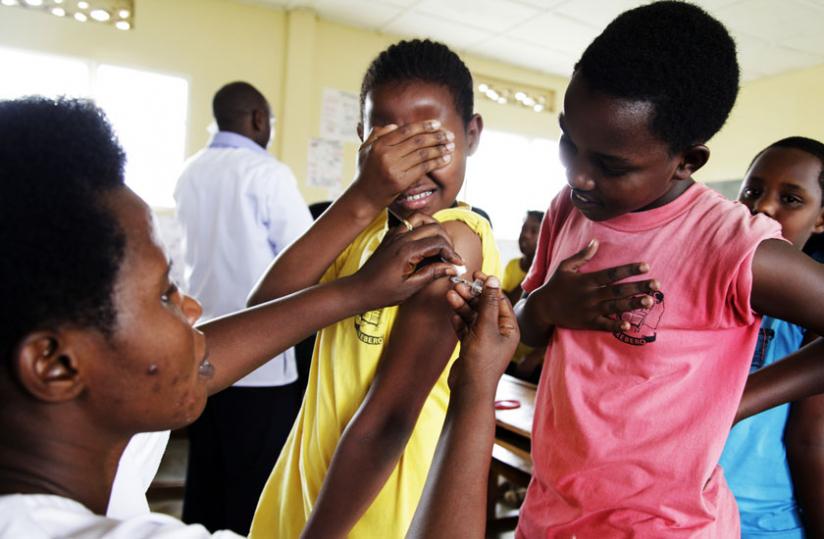Members of network of people living with HIV and local leaders in Rubavu District have been urged to help protect people living with HIV/Aids against cervical cancer.


Members of network of people living with HIV and local leaders in Rubavu District have been urged to help protect people living with HIV/Aids against cervical cancer.
The call was made by medics during a two-day training aimed at showing the linkage between HIV and cervical cancer.
The drive aims at promoting screening for Human Papilloma Virus (HPV) among women living with HIV.
The medics observed that women living with HIV/Aids are more vulnerable to cervical cancer.
Participants were also urged to help women living with HIV/Aids by bringing to their attention the factors that contribute to development of cervical cancer.
The factors include immunity suppression, multi-parity, early age at first delivery, cigarette smoking, long-term use of hormonal contraceptives, and co-infection with Chlamydia trachomatis or herpes simplex virus.
Dieudonne Ruturwa, the community mobilisation and networking adviser at Unaids, said the training would help mobilise women with HIV/Aids and others in general against cervical cancer.
"HIV-infected women who are also infected with specific types of HPV are more susceptible to cervical cancer than HIV-negative women,” Ruturwa said.
He said the involvement of women living with HIV/Aids is essential in the fight against cervical cancer.
Cervical cancer is caused by certain types of HPV and is ranked by the World Health Organisation as the leading cause of cancer deaths among women.
Jean-Paul Balinda, the cancer disease senior officer at Rwanda Biomedical Centre (BMC), said cervical cancer is preventable and can be treated once affected women seek treatment in time.
He urged participants to play a part in mobilising women, especially those living with HIV/Aids to prevent them from contracting cervical cancer.
"Cervical cancer is preventable and has a 95 per cent chance of being cured. Use the acquired skills to mobilise women, especially in the villages to fight the epidemic,” Balinda said.
"Let’s limit the prevalence and commit the money we use in treatment to development activities,” he added.
The network of people living with HIV has around 75,000 members, 70 per cent of whom are women, according to Donatille Mukantabera, the network’s vice president.
"This programme will help us reach out to more people since we have partnered with local leaders who are in direct contact with residents,” she said.
Participants committed to teaching HIV positive women and other women, in general, about the dangers of cervical cancer and how it can be prevented.
Similar training sessions will take place in other districts countrywide to help local leaders and civil society understand their role in the prevention of cervical cancer among HIV positive women, according to officials.
The training was organised by the Network of people living with HIV/Aids in partnership with BMC and Unaids.


